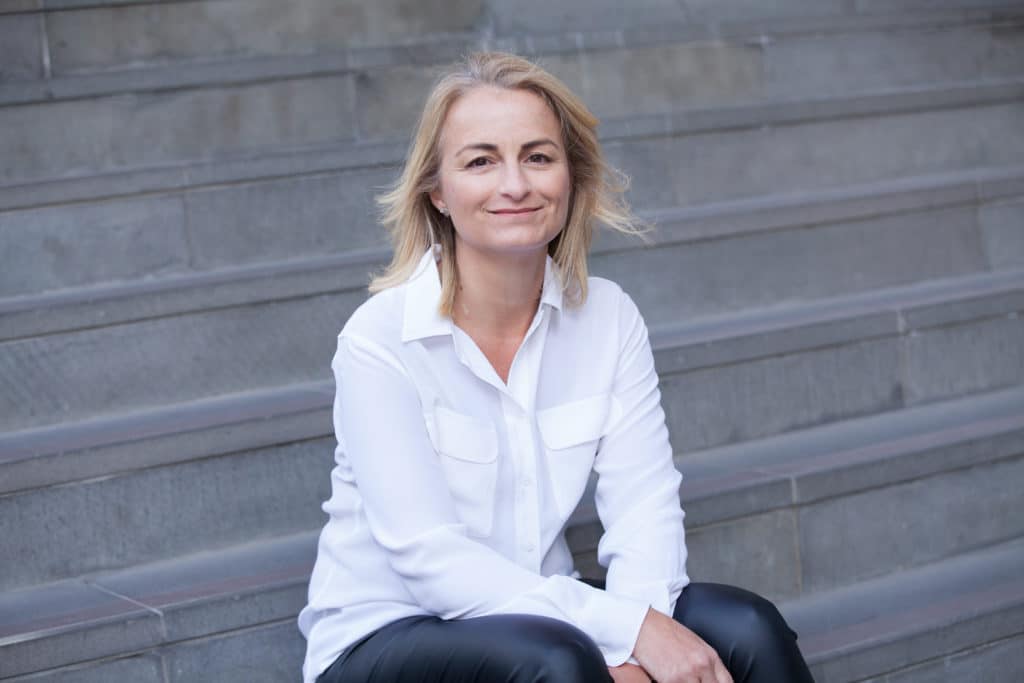In a world with still too few women at decision-making tables, what can be done to address the gap?
This is a question progressive employers scratch their heads over daily. But those with serious intent consider it so fully that they look beyond the simple measures of flexibility, leadership events and cookie-cutter training exercises.
These employers are the ones who know that “leadership ladders” are often hard to climb on if you don’t have the right leg up.
What is sponsorship?
The term sponsorship is something that’s gained momentum over the past decade in corporate arenas, but it’s far from a hollow buzz word. Cultivated in the right way, sponsorship is something with the potential to level the playing field for working women; particularly in male-dominated industries.
Through sponsorship, established leaders connect with, and then champion, emerging talent in the business. They use their social capital and standing to offer unprecedented pathways for development, exposure, and opportunity.
The fruits of these dynamics can be significant. Research shows that women who are sponsored in their careers have better prospects for advancement. While a study conducted recently found that sponsored employees earn 11.6 percent more than their colleagues.
The opportunity for employers
Like mentorship, informal sponsorship can occur organically in workplaces, but there’s no guarantee. Another barrier here, is that senior men tend to take an interest in the career progression of younger male proteges, further widening the leadership gap for women.
Australian organisations have an excellent opportunity to foster meaningful relationships and create brand new pathways for talented women through curated programs.
Cultivate Sponsorship for instance, is an Australian outfit which offers a holistic approach to sponsorship. Through a 7-month program with 12-month support, Cultivate works with employers to identify emerging talent, connect them with suitable leaders and nurture long-term cultural change.
Kate Dunton, a senior leader at infrastructure consulting firm, AECOM has been a sponsor in the Cultivate program for three years, and says she’s continually surprised by what she extracts from it.
“I have established several strong and long-standing relationships which serve me well to this day,” she tells Women’s Agenda. The program also enabled her to rethink her approach to sponsorship and mentorship and become “more deliberate” about her approach to sponsorship as a result.

Working within a male-dominated industry, Dunton describes “a natural bend towards organic male sponsorship, which we needed to address”.
“We need to tackle many other levels of diversity but creating a strong and successful female leadership pipeline and providing excellent opportunities to our highest-performing women is a crucial reason for the program,” she says.
Through the program, which includes online modules delivered through an app and achieved at one’s own time and pace, Cultivate sponsors and sponsored employees form a genuine and trusting connection.
Juli Anderson, another AECOM employee, was put forward to be sponsored in 2020 by her manager. She had just finished up parental leave in lockdown and describes her return to work as daunting.
Her “dread” of pursuing any additional work on top of an already immense load was soon relieved however, when she realised that her sponsor was incredibly supportive of her life situation. “There was never any pressure, but slowly over a series of long conversations, we shared experiences,” she says.

“The supporting technology was on demand, inspiring and not overly onerous,” Anderson adds. “You did a lot of the reading in your own time leaving a lot of room for rumination. It’s what made this program a hugely self-reflective and personal journey.”
Darshana Parekh, Cultivate’s Head of Partnerships recounts her own experience of gaining sponsorship and her recognition of how powerful these relationships can be—something which ultimately led her into her existing role.
As a woman of colour, Parekh’s barriers to leadership growth as a lawyer were two-fold. She describes challenges in proving her value; “having someone to see my skills and see beyond the stereotype of a woman and being a woman of colour”, she says.
When a senior lawyer did just that and offered Parekh the opportunity to stand in her place as a speaker at an industry event, things changed monumentally.
“My sponsorship relationship started with her, in terms of being able to get access to speaking events in Sydney and also writing opportunities– being published in legal journals and the like,” she says. “She gave me visibility and she gave me access to her networks”.
Parekh adds that “sponsorship isn’t about a golden ticket to the top, or an easy way out. If anything, you are working harder because you’ve got an opportunity that’s been presented to you by someone who trusts you, and so you do feel like you owe it to that person to do a really good job,” she says.
And sponsorship isn’t solely about the opportunity that the person is presenting to you in an isolated moment.
“It’s about working those opportunities, working that visibility, and working that networking to a point where once you do become comfortable, you can put your hand forward for something a lot more tangible, like a role promotion or a spot on a committee.”
Sponsors who offer their time, networks, and social capital gain significant benefits too—it’s symbiotic.
“With the Cultivate program, we say that both parties are on a leadership journey. Sponsors are not simply imparting advice but receiving feedback from someone that they may not have ordinarily been exposed to; they are able to see themselves through the eyes of another person,” says Parekh.
“In turn, the sponsor can see a sponsee for who they are beyond their appearance. It is about making sure that lived experiences are heard, but also that people’s skills are highlighted. And it’s also about understanding that leadership, when it comes to culture change, doesn’t have to stem from a title.”
This piece was written in partnership with Cultivate Sponsorship. Click here to find out more about their programs.

